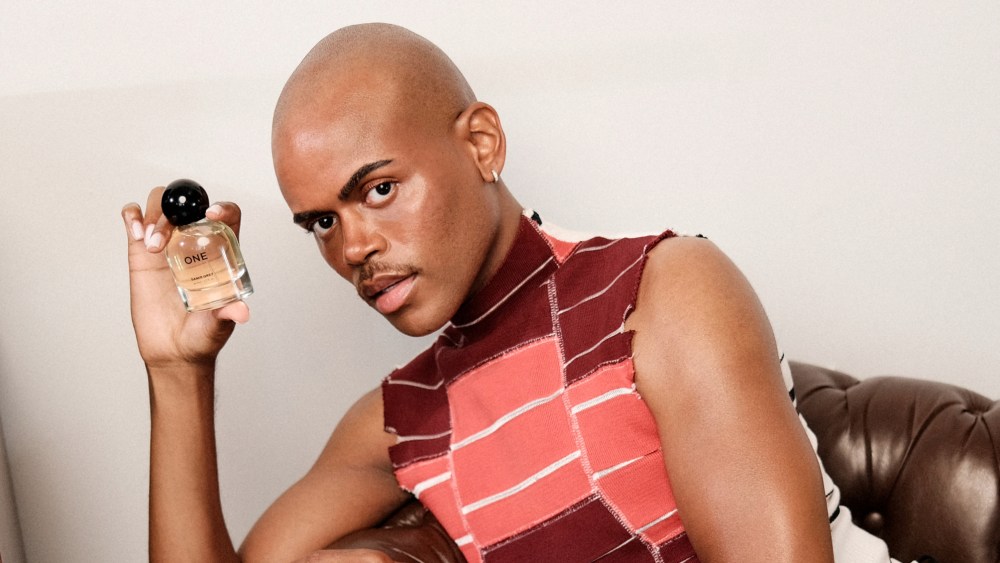When Glennda Baker was just starting out in real estate, it was 1992 – “when Jesus was a baby,” as she told Vivian Tu in this week’s episode of the “Networth and Chill” podcast, presented in partnership with Vox Media and PS, and sponsored by Marshalls. At the time, the landscape in Atlanta, GA, wasn’t so friendly to young mothers like herself, and she faced a few harsh rejections (one for being “too bubbly”) before she landed herself in a role where she felt supported to grow.
That first job kick-started Baker’s journey to becoming one of the most successful real estate moguls in Atlanta, raking in regular six-figure commission checks. Today, Baker’s content about the real estate business – and her signature Southern twang – have garnered her hundreds of thousands of followers on social media and a still-booming business.
This week, she sat down with Tu to talk about her career in real estate and to reflect on how far she’s come since those days of trying and failing to bag an assistant job at a firm.
Read a snippet from the conversation below, and for more real estate advice, listen to the full episode, “Homes, Loans, and Groans – Real Estate Pitfalls to Avoid,” on Apple Podcasts, Spotify, YouTube, and wherever else you get your podcasts.
Vivian Tu: How did you feel going into this industry that’s oftentimes been pretty male-dominated?
Glennda Baker: I had been reading a book, “How to Develop a Six Figure Income in Real Estate.” And I went to the real estate Taj Mahal, the biggest real estate office in Atlanta. And I walked in and I said, “Can I talk to the broker?” Like, can I have a job, please? And I said, “Would you hire me?” And she goes, “Well, sure.”
[Once] I started getting the lay of the land, I saw the girl who was No. 1 in the office. I moved my cubicle right outside of her office. I listened to everything that girl said. If she needed a copy or a coffee, I went and got it, and I just absorbed everything that she did. So I started Sept. 4, and by December, I was agent of the month. I went in every single day at 9 o’clock.VT: Wow. You did that quick.
GB: I did. I didn’t have the luxury to fail. Not selling a house was not an option. Not getting a paycheck was not an option for me, not an option. I had to have the money.
VT: How did you budget knowing that real estate’s a commission-based job? Like you said, you don’t always get a paycheck, you got to sell a house.
GB: Yeah, I didn’t. I literally didn’t spend any money on any single thing. I spent as little money as possible. I ate rice and beans and just took care of my little baby and just kept everything I could because even early on, I realized that I might not sell a house all of the time. I couldn’t figure out what was the cadence of selling the house, because I would see these agents and they would sell a house, and then they wouldn’t sell anything, and then they’d sell a house and they wouldn’t sell anything. I thought, what is the difference? I need something that’s predictable. And what I realized was as long as I worked every day that I was consistent, that the money would be consistent. That was probably my first biggest lesson in real estate. . . . If I worked at it consistently, then consistently I would make money.
VT: I can tell you’re someone who loves to eat what they kill.
GB: Yeah, absolutely. I was never picked on the playground, the last kid picked on the playground. And so for me, proving myself was important to me. And when I found out like, oh, wait a minute, I can do this and I don’t have to reinvent the wheel. This girl’s making a truckload of money, I can do that too. And so for me, it was not only eat what you kill, but it was to prove myself.
VT: And was there ever any animosity between that girl and you now that you’ve kind of taken her seat?
GB: No, there was never ever any animosity because she inspired me. And to me, we were never competitors. I stood in such awe of her and I realized the gift that I had been given to have the opportunity to listen to her talk, listen to her talk to clients, listen to her talk to agents, and I just had so much reverence for her. So to me, I’m never ever in competition, I’m always collaborating with those people. I think competition happens in the basement. It doesn’t happen in the penthouse, because in the penthouse, you’re always talking about how you can help each other.
Emma Glassman-Hughes (she/her) is the associate editor at PS Balance. In her seven years as a reporter, her beats have spanned the lifestyle spectrum; she’s covered arts and culture for The Boston Globe, sex and relationships for Cosmopolitan, and food, climate, and farming for Ambrook Research.




